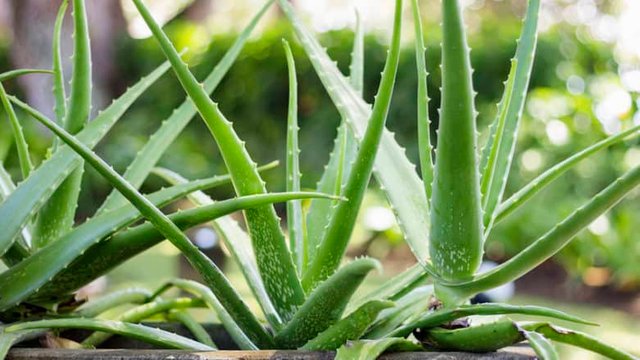Does Aloe Juice Help Heal Strained Muscles?
Marketers of aloe vera products draw attention to the potential health benefits of drinking aloe vera juice. Yet scientific evidence proving that aloe is safe for human consumption is limited and inconclusive, points out author and nutritional consultant Dr. Mike Roussell. Despite the concerns about the safety of taking aloe orally, when a muscle injury occurs, some people rely on the healing properties of aloe vera juice as a home remedy for relieving the symptoms of pain and inflammation.
TREATMENT OF MUSCLE STRAIN
The symptoms of a muscle strain can vary depending on how seriously you injured the muscle. Usually, symptoms include swelling and pain with limited movement of the affected muscle. Treatment is initially aimed at reducing pain and swelling. Although you can generally treat most minor strains at home, Mayo Clinic recommends contacting your doctor if you are unable to move the affected joint or the pain gets worse when you move. Other signs of a more serious strain include numbness where the injury occurred or difficulty walking more than four steps without suffering severe pain. If you experience more than minor symptoms associated with a strained muscle, see your doctor rather than self-treating with home remedies.
NUTRITIONAL CONTENT OF ALOE JUICE
Because aloe vera juice is known for its natural anti-inflammatory properties, some people drink it to decrease muscle and joint pain. Aloe vera juice contains a wide variety of nutrients the body needs to repair tissue and fight inflammation. Iron, calcium, manganese, copper and zinc are some of the minerals in aloe juice that contribute to joint function and connective tissue repair. The juice also contains vitamins A, B-1, B-2, B-6, B-12, C and E, plus folic acid and niacin -- nutrients that may decrease inflammation and muscle pain. The B vitamins also help speed the repair of damaged musculoskeletal tissue. Eating a nutritious diet can prevent strains by helping you maintain healthy bones and keeping your muscles strong.
ALOE RESEARCH
Scientific evidence supporting the use of aloe vera for medicinal purposes other than as a topical ointment to help heal minor skin irritations is insufficient, reports the National Center for Complementary and Alternative Medicine. There are cases in which people who consumed aloe vera products orally reported suffering side effects such as abdominal cramps and diarrhea. Other studies suggest that aloe may lower blood glucose levels in individuals with diabetes who take prescription medication to control blood sugar. In addition, the findings of a National Toxicology Program study show that whole-leaf aloe vera extracts containing anthraquinones produce carcinogenic effects in rats. Although the potential cancer risk to humans remains unknown at this time, consult with your doctor before using any oral product containing aloe.
WARNING
The use of aloe vera as a home remedy to treat injuries and sickness dates back to ancient civilizations. However, the herb can produce harmful side effects or cause an allergic reaction in some people. In some cases, aloe vera may interact with other herbal remedies, dietary supplements or prescription and over-the-counter medications. Still, according to the University of Maryland Medical Center, aloe vera contains glycoproteins -- substances that may act to decrease pain and inflammation. Although the use of aloe to treat minor skin irritations is safe, taking aloe orally can be harmful to some people, particularly infants, children, pregnant women and nursing mothers. In addition, oral aloe can cause problems for individuals taking diuretics, certain heart medications or medications to treat diabetes.
REFERENCES
- https://www.shape.com/weight-loss/food-weight-loss/ask-diet-doctor-truth-about-aloe-vera-juice
- https://my.clevelandclinic.org/health/diseases/10265-back-strains-and-sprains
- https://www.mayoclinic.org/diseases-conditions/sprains/symptoms-causes/syc-20377938
- https://www.drkoop.com/aloe-vera-benefits-dosages-safety-precautions/
- https://www.bodybuilding.com/fun/md86.htm
- https://medlineplus.gov/ency/article/002709.htm
- https://nccih.nih.gov/health/aloevera

Congratulations @hnub!
You raised your level and are now a Minnow!
Vote for @Steemitboard as a witness to get one more award and increased upvotes!